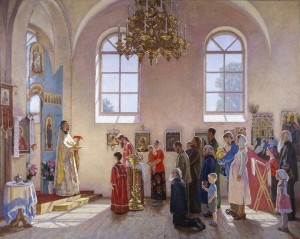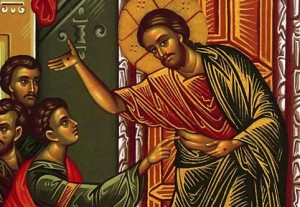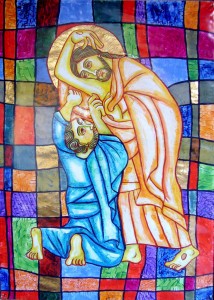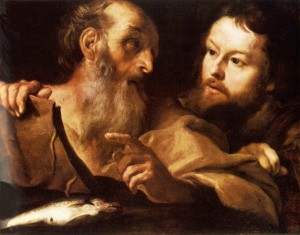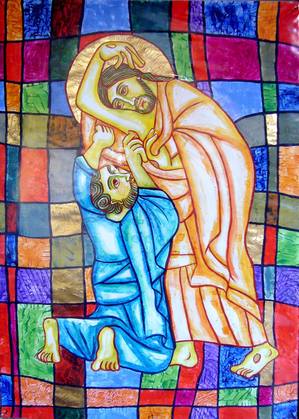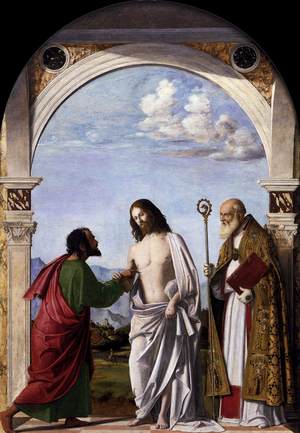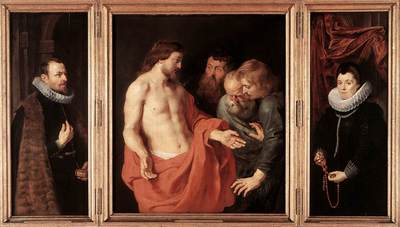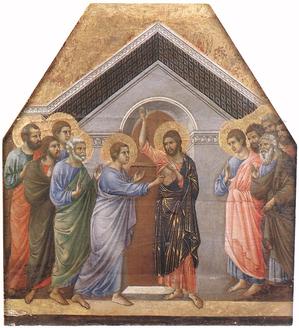
The feast of Saint Thomas is Easter in summer: an opportunity to open a new door in what we believe about in the Messiah. Saint Gregory notes below, God arranged His mercy particularly for us in concrete experience. He took the initiative once again.
With the Church, we pray:
Grant, almighty God, that we may glory in the Feast of the blessed Apostle Thomas, so that we may always be sustained by his intercession and, believing, may have life in the name of Jesus Christ your Son, whom Thomas acknowledged as the Lord.
From a homily on the Gospels by Saint Gregory the Great, pope
Thomas, one of the twelve, called the Twin, was not with them when Jesus came. He was the only disciple absent; on his return he heard what had happened but refused to believe it. The Lord came a second time; he offered his side for the disbelieving disciple to touch, held out his hands, and showing the scars of his wounds, healed the wound of his disbelief.
Dearly beloved, what do you see in these events? Do you really believe that it was by chance that this chosen disciple was absent, then came and heard, heard and doubted, doubted and touched, touched and believed? It was not by chance but in God’s providence. In a marvellous way God’s mercy arranged that the disbelieving disciple, in touching the wounds of his master’s body, should heal our wounds of disbelief. The disbelief of Thomas has done more for our faith than the faith of the other disciples. As he touches Christ and is won over to belief, every doubt is cast aside and our faith is strengthened. So the disciple who doubted, then felt Christ’s wounds, becomes a witness to the reality of the resurrection.
Touching Christ, he cried out: My Lord and my God. Jesus said to him: Because you have seen me, Thomas, you have believed. Paul said: Faith is the guarantee of things hoped for, the evidence of things unseen. It is clear, then, that faith is the proof of what can not be seen. What is seen gives knowledge, not faith. When Thomas saw and touched, why was he told: You have believed because you have seen me? Because what he saw and what he believed were different things. God cannot be seen by mortal man. Thomas saw a human being, whom he acknowledged to be God, and said: My Lord and my God. Seeing, he believed; looking at one who was true man, he cried out that this was God, the God he could not see.
What follows is reason for great joy: Blessed are those who have not seen and have believed. There is here a particular reference to ourselves; we hold in our hearts one we have not seen in the flesh. We are included in these words, but only if we follow up our faith with good works. The true believer practices what he believes. But of those who pay only lip service to faith, Paul has this to say: They profess to know God, but they deny him in their works. Therefore James says: Faith without works is dead.
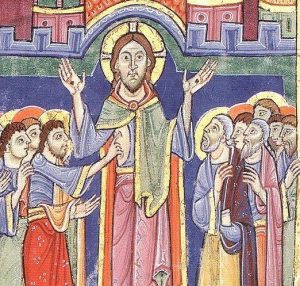 One of the intriguing scenes in the Resurrection narratives is the interaction between the Risen Lord and his Apostle, St. Thomas. Plenty have opined the meaning.
One of the intriguing scenes in the Resurrection narratives is the interaction between the Risen Lord and his Apostle, St. Thomas. Plenty have opined the meaning.